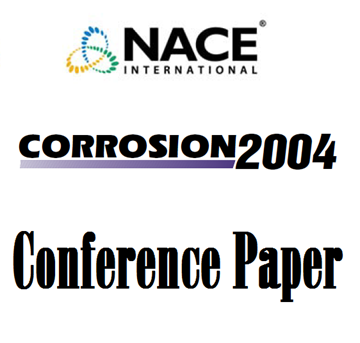Search
04057 Application of Bayes' Model to Oil/Gas Processing Networks Failures
Also Purchased
04192 Integrity Assessment of Pipeline Networks Through Close-Interval Potential Survey
Product Number:
51300-04192-SG
ISBN:
04192 2004 CP
Publication Date:
2004
$20.00
04178 Issues and Challenges of Aging Pipeline Coating Infrastructure in Nigeria's Oil and Gas Industry
Product Number:
51300-04178-SG
ISBN:
04178 2004 CP
Publication Date:
2004
$20.00
06442 POSSIBLE GLYCOL CORROSION IN NOMINALLY DRY GAS PIPELINES
Product Number:
51300-06442-SG
ISBN:
06442 2006 CP
Publication Date:
2006
$20.00




